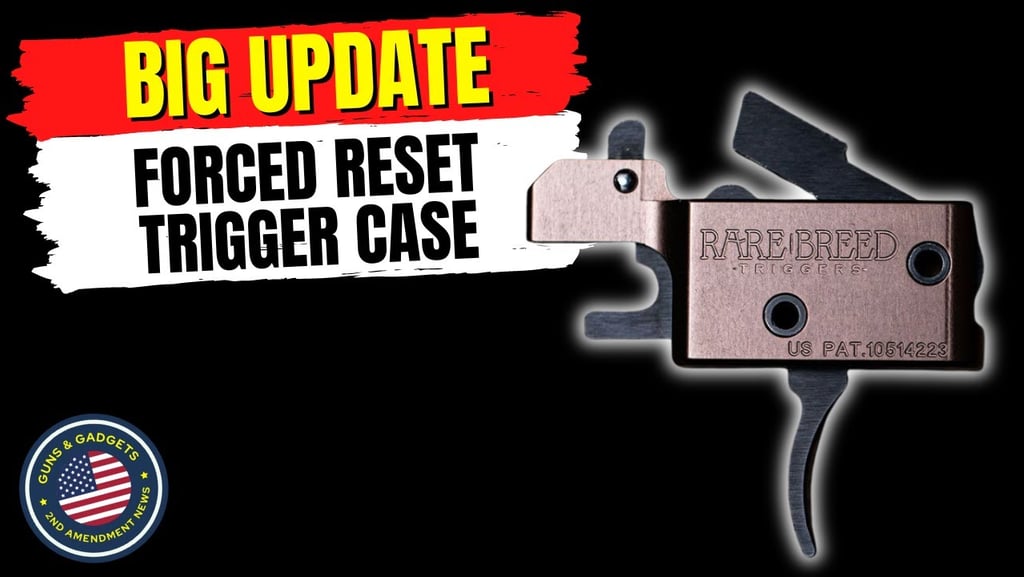Rare Breed Triggers update
The recent settlement with the U.S. government regarding our forced-reset triggers (FRTs)
6/10/20252 min read


Rare Breed Triggers is making headlines due to a recent settlement with the U.S. government regarding their forced-reset triggers (FRTs), specifically the FRT-15 and Wide Open Triggers (WOTs). This settlement has been a topic of significant debate within the firearms community.
Here's a breakdown of the key aspects of the Rare Breed Triggers update:
1. The Settlement:
The U.S. Department of Justice reached a settlement with Rare Breed Triggers, LLC, Rare Breed Firearms, LLC, National Association for Gun Rights Inc., Texas Gun Rights, Inc., and individuals named in the agreement.
This settlement allows Rare Breed to resume selling FRTs and WOTs.
It also involves the return of FRTs and WOTs that were seized or voluntarily surrendered by the government.
The settlement stems from a court ruling that determined FRTs and WOTs are not machine guns under the National Firearms Act.
2. Return of Seized and Surrendered Devices:
The Bureau of Alcohol, Tobacco, Firearms and Explosives (ATF) (.gov) will be notifying owners of eligible FRTs and WOTs by mail and providing instructions on how to retrieve them.
The return process will be handled through local field offices.
Certain federal and state prohibitions may still apply in jurisdictions where forced-reset triggers are prohibited.
3. Key Legal Considerations:
A federal court ruling in Texas determined that Rare Breed's FRT-15 and WOTs are not machine guns under the National Firearms Act (NFA).
This ruling was based on the Supreme Court's decision in Cargill v. Garland, which held that the ATF exceeded its statutory authority by classifying bump stocks as machine guns.
The settlement avoids the need for continued appeals in the case against Rare Breed.
4. Ongoing Discussions:
There are ongoing discussions within the firearms community regarding the legality and ethical implications of FRTs and WOTs.
Some argue that FRTs are not machine guns and should not be subject to the same regulations.
Others express concerns about their potential use in firearms that could result in multiple rounds firing rapidly.
In essence, the Rare Breed Triggers settlement represents a significant development in the ongoing debate surrounding forced-reset triggers and their classification under federal law.
RARE BREED TRIGGER
Revolutionizing trigger technology for enhanced performance.
2710 Central Freeway
Ste 150 - 151
Wichita Falls, TX 76306
© 2025. All rights reserved.
